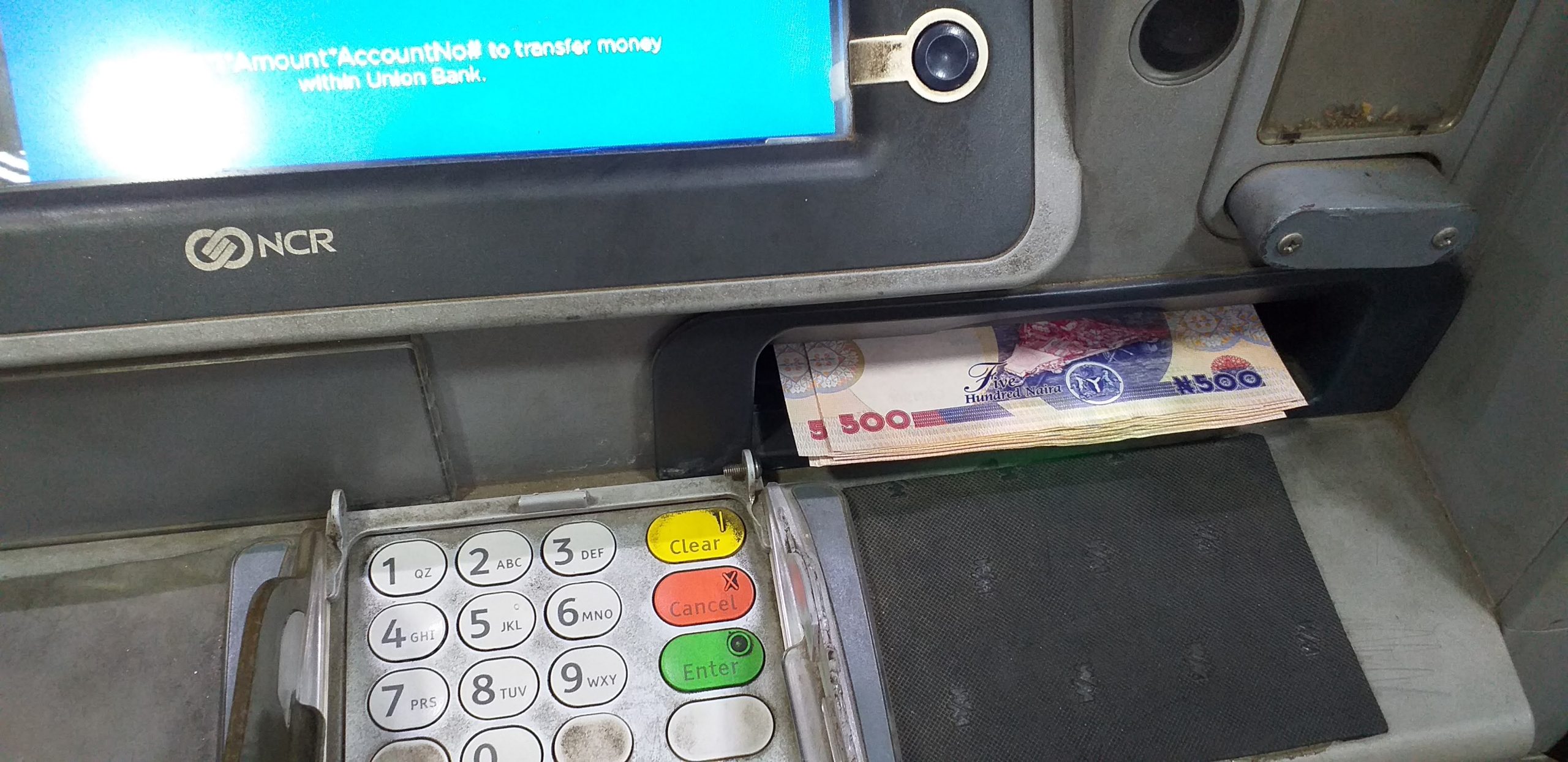Cash Scarcity and POS Street Vendors
The Nigerian banking sector is grappling with a crisis of trust and transparency. A new and concerning trend has emerged, particularly in the Lagos area, where cash is scarce at bank ATMs and tellers, yet street vendors equipped with Point of Sale (POS) machines offer cash at a premium.
This situation has worsened since the Buhari-Emefiele Central Bank of Nigeria Naira redesign in 2023, which led to a scarcity of the domestic currency, the Naira.
Join our WhatsApp ChannelThe Unethical Trend of POS Proliferation
The redesign aimed to combat inflation and reduce the amount of physical cash in circulation. However, it inadvertently created a lucrative opportunity for street vendors.
These vendors have capitalised on the scarcity, charging desperate bank customers exorbitant fees for cash withdrawals. The emergence of POS hawkers has left many Nigerians frustrated and questioning the integrity of the banking system.
Allegations of Collusion
There are growing allegations of collusion between top bank officials and street vendors. This suspected collusion has led to extortion and economic sabotage.
Many believe that bank executives are intentionally restricting cash flow to ATMs and tellers, forcing customers to seek out street vendors who offer cash at a premium. This artificial scarcity of cash has become a widespread issue, affecting millions of Nigerians.
“The allegations of collusion between bank executives and street hawkers have cast a shadow of doubt over the transparency and accountability of Nigeria’s financial institutions.”
READ ALSO: CBN Revises Guidelines For Foreign Currency Deposits
The Impact on Bank Customers
Customers have expressed their frustration at being unable to access their funds through traditional banking channels. This has forced them to rely on street vendors, who often charge fees as high as 10% for cash withdrawals.
One customer at Yaba, Chike Emmanuel, shared his experience: “I went to three different ATMs, and none of them had cash. I had no choice but to go to a POS vendor, and they charged me a ridiculous fee of N2,000 for N50,000.”
Economic Sabotage and Profiteering
The circulation of dirty and worn-out notes by banks, while street vendors offer crisp new notes, further highlights the disparity in currency management practices.
This deliberate withholding of clean notes by banks, only to be distributed at a premium by street vendors, is seen as a clear indication of economic sabotage and profiteering at the expense of the public.
Calls for Accountability
The Central Bank of Nigeria and top bank management must address these issues to restore public trust in the banking system. The allegations of collusion and the unethical behaviour of some bank officials demand immediate action. Transparency and accountability are crucial to resolving this crisis.
Security Agencies’ Role
Security agencies must investigate and prosecute those involved in this extortion scheme. The failure to do so will continue to undermine the credibility of Nigeria’s financial sector. Immediate and decisive action is required to ensure that justice is served and to deter future wrongdoings.
A Unique Phenomenon
This pattern of restricted cash dispensation and the availability of cash through POS vendors at a premium is unusual and troubling. It highlights systemic issues within the Nigerian banking sector that need to be addressed.
The Central Bank of Nigeria and the top management of Nigerian banks must take proactive measures to end this malpractice.
Restoring Trust in the Financial Sector
To overcome this crisis, Nigerian financial institutions need to prioritise transparency and accountability. Only through concerted efforts and decisive actions can the country build a more resilient and trustworthy financial sector. The interests of the public must be protected, and the integrity of the banking system must be upheld.
The allegations of collusion between top bank officials and street vendors offering cash at a premium raise serious concerns about the integrity of Nigeria’s banking system.
It is time for the Central Bank of Nigeria and the top management of Nigerian banks to take proactive measures to address this malfeasance and restore public trust. Security agencies must play a crucial role in investigating and prosecuting those involved in this extortion scheme.
Accountability and transparency are essential to ensuring the interests of the public are protected and the integrity of the banking system is upheld.
Emmanuel Ochayi is a journalist. He is a graduate of the University of Lagos, School of first choice and the nations pride. Emmanuel is keen on exploring writing angles in different areas, including Business, climate change, politics, Education, and others.
- Emmanuel Ochayihttps://www.primebusiness.africa/author/ochayi/
- Emmanuel Ochayihttps://www.primebusiness.africa/author/ochayi/
- Emmanuel Ochayihttps://www.primebusiness.africa/author/ochayi/
- Emmanuel Ochayihttps://www.primebusiness.africa/author/ochayi/




















Follow Us